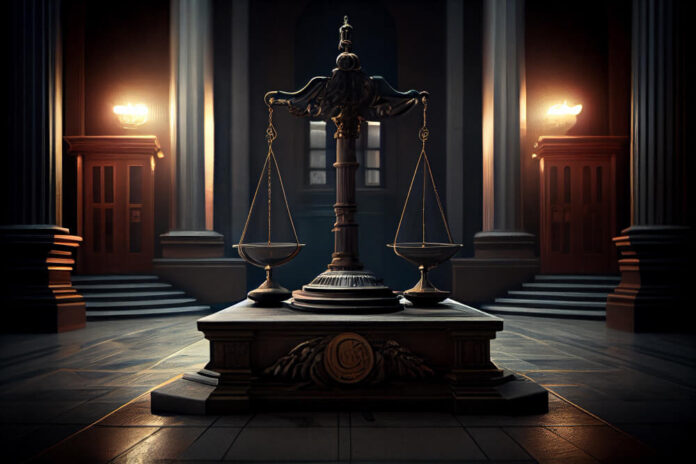At the heart of every nation’s legal system lies its supreme law and that represents the highest authority in governance. In the United States, if you are asking: What is the supreme law of the land, then you are referring to none other than the Constitution and its constitutional amendments.
The constitution, being the recognized law of the land, serves as the guiding force that shapes the country’s policies, protects individual rights, and ensures the preservation of its democratic values. In this article, we will be showing you all that you need to know about the supreme law of the land in the U.S.
If you have been asking yourself what is the supreme law of the land, then you should keep reading!
Table of Contents
What Is the Supreme Law of the Land?
In the United States, the bedrock of the entire legal system rests on the United States Constitution. Crafted by the visionary Founding Fathers, this revered document came into being as a response to the shortcomings of the Articles of Confederation.
It was a crucial step in the nation’s journey towards a more perfect union, one that aimed to strike a delicate balance between the dangers of tyranny and the pitfalls of chaos.
Drawing from their own experiences of colonial tyranny and the disarray that plagued the early confederation, the Founding Fathers understood the necessity of a well-crafted system that could pave the way to prosperity for the nation.
Thus, they carefully drafted the Constitution to ensure the protection of individual rights, the distribution of power, and the establishment of a robust framework for governance.
Even till today, the supreme law of the land in the United States remains the original Constitution and its Bills of Rights. While the constitution has been amended many times, it still retains the original idea in the hearts of the Founding Fathers when creating the document.
So, once again, the answer to the question, ‘What is the supreme law of the land?’ is the Constitution. Now, let’s take a step further to see what the constitution entails.
You may also like:
The Constitution Serves as an Ultimate Tool for Creating a Balance

At the core of the United States Constitution lies a brilliant design that ensures a delicate balance of power within the government, preventing any individual or group from amassing excessive control. The concept of checks and balances was meticulously woven into the Constitution, hence helping to safeguard the nation’s longevity and prosperity.
This balance is achieved through the division of power among three distinct branches of government: the legislative branch, which creates the law; the executive branch which enforces the law; and the judicial branch which interprets it. Now, let’s take a closer look at each of these branches.
#1: Legislative Branch
The legislative branch, forming the Congress, embodies a bicameral legislature. The Senate ensures equal representation for each state with two senators, while the House of Representatives’ representation is based on respective populations. Together, they create the federal laws that govern the United States.
#2: The Executive Branch
The executive branch is led by the President, Vice President, and their appointed officials. This branch of government is responsible for managing and directing the national government and military. While they can engage with Congress, their primary role is enforcement and administration.
#3: The Judicial Branch
Completing the triad, the judicial branch comprises the country’s court system. The highest court in the country is the Supreme Court, which hears especially significant cases at a federal level.
The nine Supreme Court justices hold the crucial duty of upholding the United States Constitution. Their rulings are derived from the Constitution, not personal opinions, and they have the authority to overturn federal laws deemed unconstitutional.
This harmonious interplay among the legislative, executive, and judicial branches exemplifies the essence of the Constitution as the supreme tool for establishing and maintaining a balanced and resilient government. It’s clear that the Constitution indeed rule over the rest of the government.
What Are Some Other Significance of the Constitution?
You don’t need to ask, ‘What is the supreme law of the land’ again. We believe you now know it is the constitution. And we have also shown you the paramount role it plays in creating a balance of power in the country.
But beyond its role in creating a balance, the United States Constitution holds several other vital significance. Let’s take a quick look at some of them.
- Safeguarding individual rights: The Constitution enshrines essential liberties and protections for every citizen, ensuring their freedom of speech, religion, and other fundamental rights.
- Establishing rule of law: Serving as the supreme law of the land, the Constitution forms the basis for all legal frameworks. It promotes stability and consistency in governance.
- Fostering unity: The Constitution unites the diverse states under a common set of principles, fostering a sense of national identity and cohesion.
- Facilitating amendment: The Constitution’s ability to be amended allows for adapting to changing times and evolving societal needs while maintaining its core principles.
- Encouraging civic engagement: The Constitution invites citizens to actively participate in the democratic process. And this serves as a great way to empower them to have a say in shaping their government.
- Inspiring democracy worldwide: The American Constitution serves as a model for democracies worldwide. Record has it that it serves as a great tool inspiring other nations in their pursuit of just and equitable governance.
How Many Times Has the Constitution Been Amended?
Since its inception, the United States Constitution has been amended a total of 27 times. These amendments reflect the evolving needs and values of the nation, addressing issues ranging from individual rights to governmental processes.
The amendment process showcases the Constitution’s flexibility and its ability to adapt to the changing dynamics of American society.
Does the Constitution Allow Freedom of Speech?
Yes, the United States Constitution does allow for freedom of speech. The First Amendment, which is part of the Bill of Rights, guarantees the protection of various fundamental rights, including freedom of speech, freedom of the press, freedom of religion, the right to assemble, and the right to petition the government.
The First Amendment ensures that the government cannot censor or restrict an individual’s expression of ideas, opinions, or beliefs, except in certain limited and specific circumstances. Such cases include when the speech incites violence or poses a direct threat to national security.
















